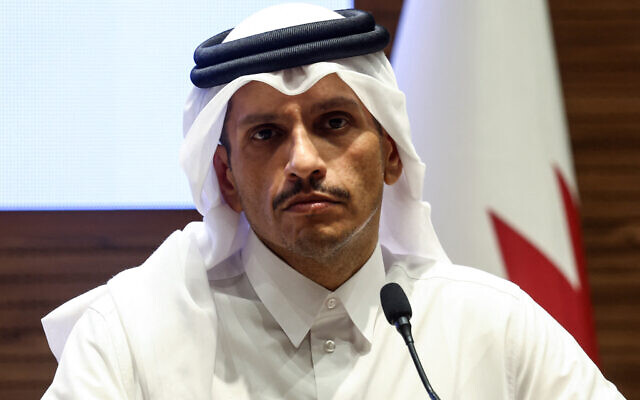



DOHA, Qatar – Talks over a ceasefire in Gaza have reached a stalemate due to Israel’s operations in the southern border city of Rafah, Qatari Prime Minister Sheikh Mohammed bin Abdulrahman al-Thani said on Tuesday.
Israeli operations in Rafah, which started this month, have closed a main crossing point for aid from the border with Egypt, a move humanitarian groups say has worsened an already dire situation.
“Especially in the past few weeks, we have seen some momentum building but unfortunately, things didn’t move in the right direction and right now we are in a status of almost a stalemate. Of course, what happened with Rafah sent us backward,” Sheikh Mohammed said at an economic forum in Doha.
Israeli tanks forged deeper into eastern Rafah, reaching some residential districts on Tuesday, stepping up an offensive in the city where more than a million people had been sheltering after being displaced in seven months of war.
Sheikh Mohammed, whose country has mediated heavily between Palestinian Islamist terror group Hamas and Israel throughout the seven-month conflict, said Qatar would keep working to resolve the situation.
“We make it very clear for everyone: our job is limited to our mediation,” he said. “That’s what we will do, that’s what we will continue to do.”
Sheikh Mohammed said the fundamental difference between the two parties was over the release of hostages and ending the war.
“There is one party that wants to end the war and then talk about the hostages and there is another party who wants the hostages and wants to continue the war. As long as there is not any commonality between those two things it won’t get us to a result,” Sheikh Mohammed said.
Talks appeared to grind to a halt last week after Hamas claimed to accept the mediators’ proposal, but actually came back with a vastly different counter offer that demanded Israel agree to an end to the war, before receiving all the hostages.
Sheikh Mohammed warned that even should the war stop, with no clear rescue plan for Gaza, there was a risk of growing radicalization in the medium term.
“We are very much worried after all these images to see another wave of radicalization. So security is the key for us in the region. We need to preserve it as much as possible.”
Israel’s international allies and aid groups have repeatedly urged against a ground incursion into refugee-packed Rafah, warning of a potential humanitarian catastrophe. Israel says it is acting to evacuate civilians ahead of moving into new areas. It says a Rafah operation is necessary as part of its effort to eliminate Hamas’s remaining operational battalions.
Israel has urged residents of some neighborhoods in the city, which the IDF has called the last major Hamas stronghold in Gaza, to evacuate over the past week. The United Nations’ agency for Palestinian refugees says that around 450,000 Palestinians have left Rafah since then, as the IDF has escalated its operations in the southernmost Gazan city.
War broke out on October 7 when Hamas terrorists infiltrated Israel and killed some 1,200 people, mostly civilians, and kidnapped 252. Another 272 soldiers have been killed during the ground offensive against Hamas and amid operations along the Gaza border.
The Hamas-run Gaza health ministry says more than 35,000 people in the Strip have been killed so far in the ensuing Israeli offensive, a toll that cannot be independently verified. The UN says some 24,000 fatalities have been identified at hospitals at this time. The rest of the total figure is based on murkier Hamas “media reports.” It also includes some 15,000 terror operatives Israel says it has killed in battle. Israel also says it killed some 1,000 terrorists inside Israel on October 7.

